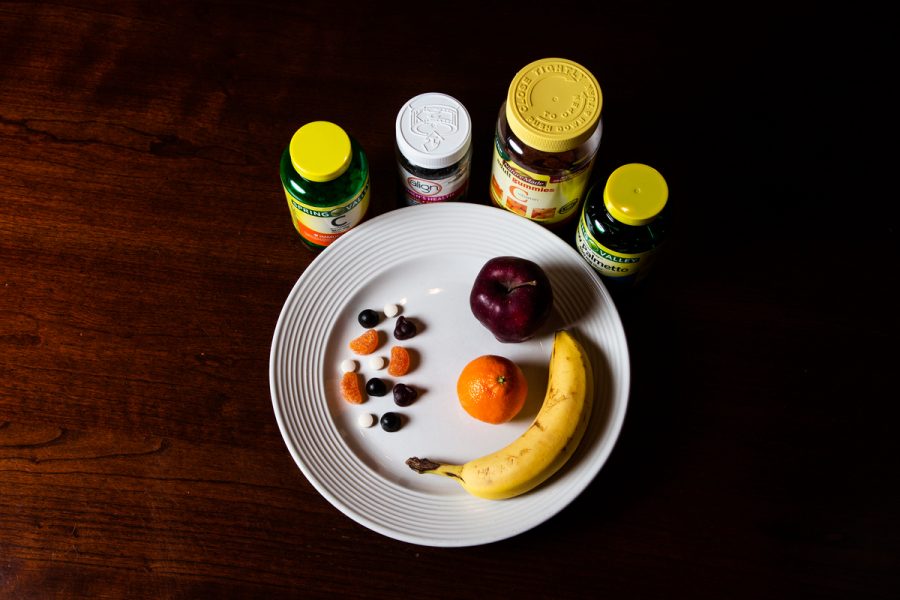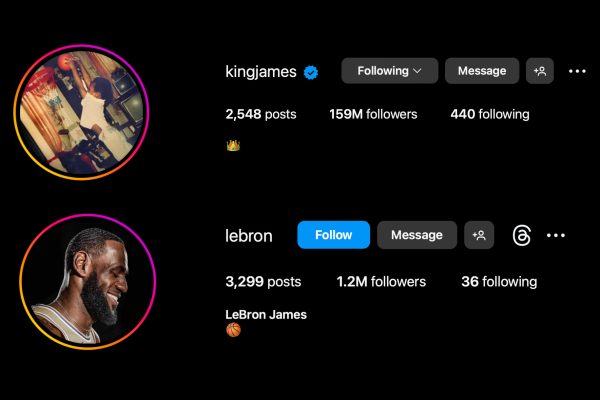The downside of vitamins
Supplements are no replacement for a healthy diet
Taking vitamins or supplements should not replace eating a healthy diet.
February 8, 2020
Vitamin C for breakfast, multivitamins for lunch and a mineral supplement for dinner. Taking vitamins is part of the daily routine for millions of Americans. The popularity of vitamin and mineral supplements has been increasing rapidly over the last decades. This is why the vitamin industry made a revenue of nearly $32 billion in 2019.
The variety of different vitamins people can buy in regular grocery stores without any prescription is unlimited. There are many misconceptions about the health benefits vitamin supplements are supposed to offer. In the past, there have not been a lot of studies questioning the promises the brands selling vitamins make. But with the growing popularity of vitamin supplements, nutritionists have started expressing their doubts concerning the positive effects of vitamins.
The term “vitamin overdosing” might seem absurd, but taking too many vitamins will eventually hurt the human body. For example, side effects of taking too much vitamin C are stomach cramps, nausea or diarrhea.
Vitamin supplements are being advertised as some magical cure to treat or prevent different kinds of diseases. Many believe that vitamins can improve one’s health and compensate for an unhealthy diet. This is why people tend to start neglecting their diet. They believe eating fast food and only drinking sodas won’t affect them just because they are taking vitamins.
It has been constantly proven that there is little evidence confirming the effectiveness of vitamin supplements. There are no reliable studies proving that these supplements reduce the risk for heart disease or cancer.
Even though people report feeling healthier after taking vitamins for a period of time, nutritionists believe that our subconsciousness tricks us into thinking that vitamins work because the brands are telling us so. In a survey of college students, nutritionists have confirmed that people tend to take vitamins because they use it as an excuse for not eating healthy.
Another problem with vitamins is that the supplement industry has little oversight in terms of regulations mostly because they are not ethical. In the past, there have been multiple cases of mislabelling, meaning that vitamins contain ingredients that are not listed on the product. This should alarm consumers to question the ingredients and the quality of the vitamins.
It is of popular belief that vitamin supplements are a necessity in addition to a healthy diet. The truth is that most American people don’t have vitamin deficiencies that require an actual treatment. In countries where everybody has access to fresh fruits and vegetables, it is almost impossible to have a vitamin deficiency that can put one’s health at risk. In fact eating fruits, vegetables, and whole grains give the body all the vitamins that it needs at the right level.
Having the right balance is important because our body only needs a limited amount of vitamins. Taking too many vitamins doesn’t just destroy that balance, but it can increase the risk of certain diseases. For example, consumers that take vitamin D regularly without having a deficiency have a higher risk of getting cancer. It is a lot safer to consume naturally through food because it will not harm the body in any way.
Unless someone has a clinically diagnosed deficiency, buying overly expensive vitamin supplements, without any guarantee of positive effects, is a waste of money. Physicians might recommend supplements in case of pregnancy or for elderly people, but generally the human body will get all the vitamins it needs by simply eating an apple from time to time.





















